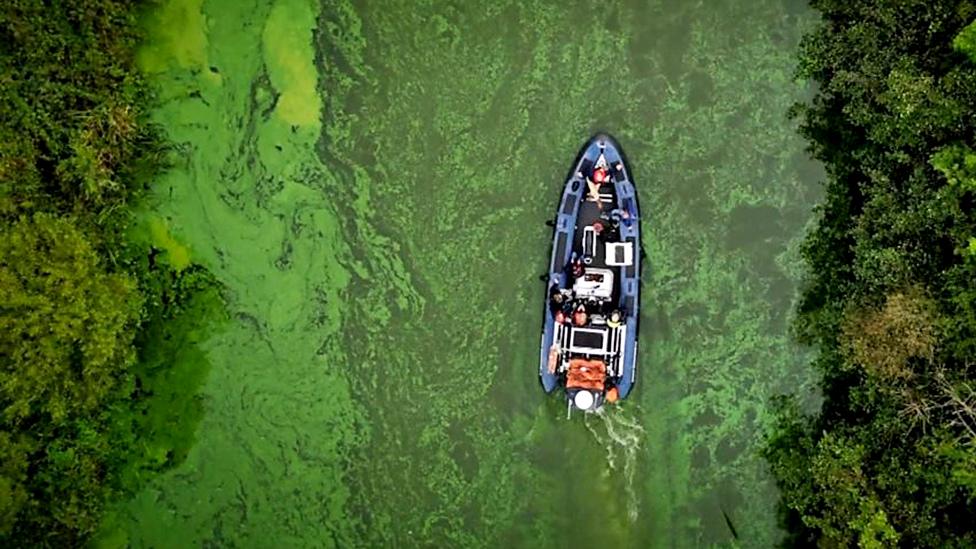Earl of Shaftesbury open to Lough Neagh sale but won't give it away
- Published
The Earl of Shaftesbury speaks to BBC News NI about the possibility of selling Lough Neagh's bed and soil
The man who owns the bed and soil of Lough Neagh has said he is still willing to sell it to the public - but won't give it away for free.
The ownership has been in the Earl of Shaftesbury's estate since the 1800s.
Campaigners say pollution is killing the lake, with wildlife and birds suffering after blue-green algal blooms over the summer.
Lough Neagh supplies half of Belfast's drinking water and 40% of Northern Ireland's overall.
The rights to the lough were given a price tag of £6m 10 years ago, but civil servants at the time advised the government not to go ahead with the sale. It is not known why.
The man who owns Lough Neagh
Nicolas Ashley-Cooper, who is the 12th member of his family to hold the title of Earl of Shaftesbury, told BBC News NI that a sale was something he was willing to discuss again.
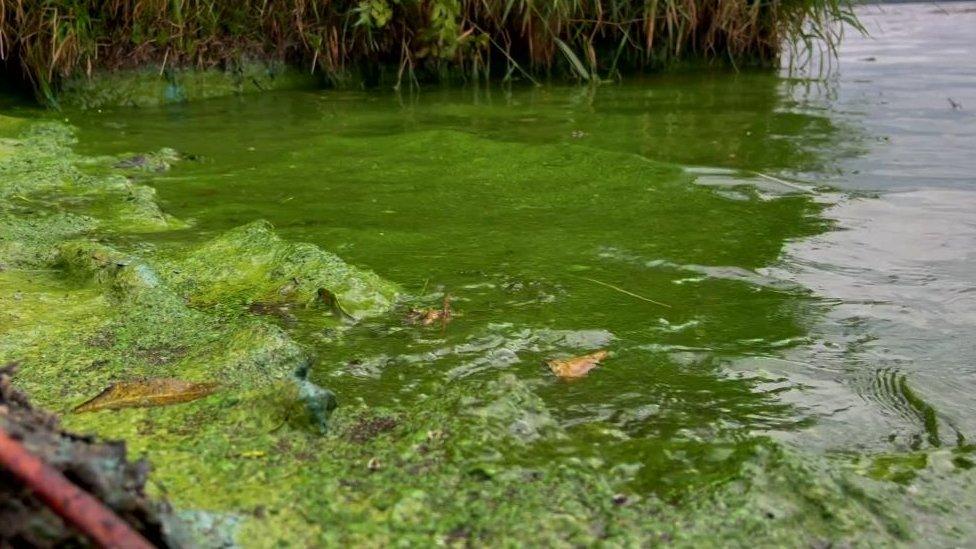
The blooms are the result of settled weather, invasive species and water pollution - mostly due to agriculture
"The situation with the sale is one that's borne out of an understanding that my ownership has always been very divisive and quite political and I always get blamed for things that are completely outside of my control," he said.
"I feel it's often used as an excuse for political inaction and I always want to do the right thing by the people living here and what's in the best interest of the lough.
"I remain open to what's the best outcome for the lough."
But the Earl of Shaftesbury said he would not consider gifting it.
"I'm well aware there are people who think that way but I'd like to be treated as any other business owner and the business has a value," he said.
"If we were going to get into a conversation about ownership, then that would be taken account of."
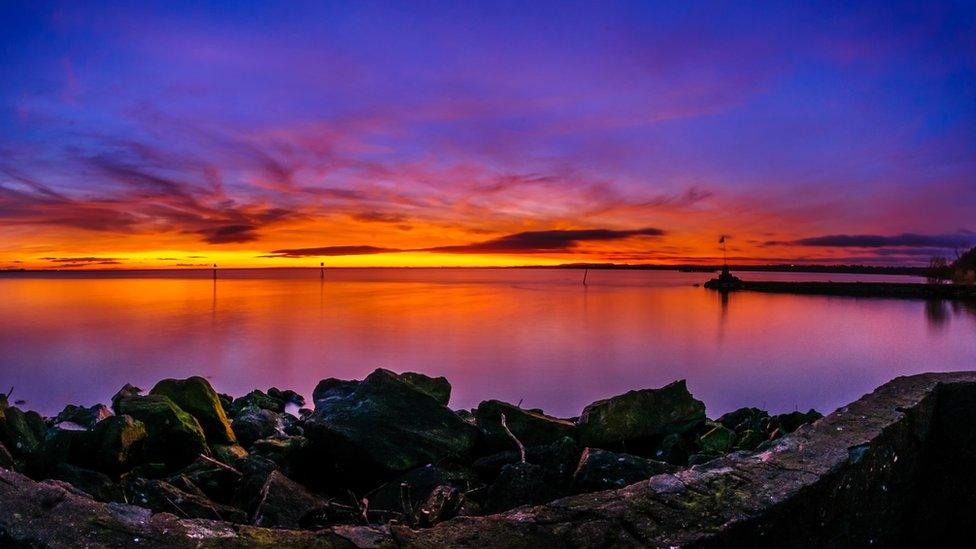
Some angling groups say pollution in the lough is putting livelihoods at risk
The ownership has been mired in controversy for hundreds of years and, in the past, there have been legal battles over fishing and hunting rights with the Shaftesbury Estate.
The earl does not think the latest environmental crisis is his responsibility.
"The issues at the moment are to do with the water, and our ownership is the bed and soil so the current situation is not our responsibility," he said.
"We are a stakeholder, though, of Lough Neagh and we are keen to be proactive in these discussions about how we come to a solution."
Some angling groups have said pollution in the lough is putting livelihoods at risk.
Lough Neagh is also home to the largest commercial wild eel fishery in Europe.
Anglers have been advised to catch and release fish that have been within the lough because of the risk the algae poses.

What's causing the algae?
The recent bloom was the result of settled weather, invasive species and water pollution mostly caused by agriculture.
Excess fertiliser runs off fields into the water, taking growth-stimulating nitrogen and phosphorus into the lough.
Meanwhile, almost two decades ago the zebra mussel, an invasive species, invaded the lough.
It filters water, making it clearer and allowing the sun's light to penetrate deeper into the depths.
That, combined with the excess nutrients from fertiliser - eutrophication - caused the algae to "bloom" or grow rapidly.

Royalties from dredging
Currently the estate has granted five licences for sand dredging in one area of the lough and opinion is divided on its environmental impact.
Friends of the Earth and others would like to see it end but the earl said his company has been through the planning process and extensive monitoring, and he does not believe it causes wider problems to the wildlife or habitat.
The income his company makes is a matter of public record - what isn't made public, though, are the royalties his company receives from sand dredging.
"The specific royalty rate is sensitive financial information - well, it's private information," he said.
Lough Neagh: Why has the UK's largest lake become green and toxic?
There are those who say the earl is allowed to operate in rules that are out of date - so does he feel a moral imperative to declare the royalties?
"Not really, just as any company would withhold certain parts of its financial information. And all of the company accounts are available on Companies House if people want to see them," he said.
Critics have described him as an absentee landlord, but he also became an accidental landlord.
He was not the direct heir to the estate and inherited it when his father was murdered, external and his older brother suffered a heart attack at the age of 27.
'We need better control'
That was 18 years ago and he believes he has learned a lot in that time: "I was here in 2012 saying basically exactly the same thing, that we need to take action."
The earl is calling for a new independent body to be set up to control and protect all of the interests in Lough Neagh.
"There are issues with sewage treatment and septic tanks and any number of elements that are contributing to the pollution in the lough," he said.
"We need better control and better management, so really it comes back to that central management body that actually has teeth and can take action to monitor the levels of pollution that are coming into the lough."
That may involve stricter controls or financial consequences for him.
He said he has nothing to fear from such a process.
"We're actually closely monitored and scrutinized but I would always want to adhere to any amount of regulations or controls," he said.
"I guess what I'm saying is there are a huge a number of other factors here that aren't regulated and it's really important that everyone adheres to the same environmental controls and that is put as a priority."
Related topics
- Published4 October 2023
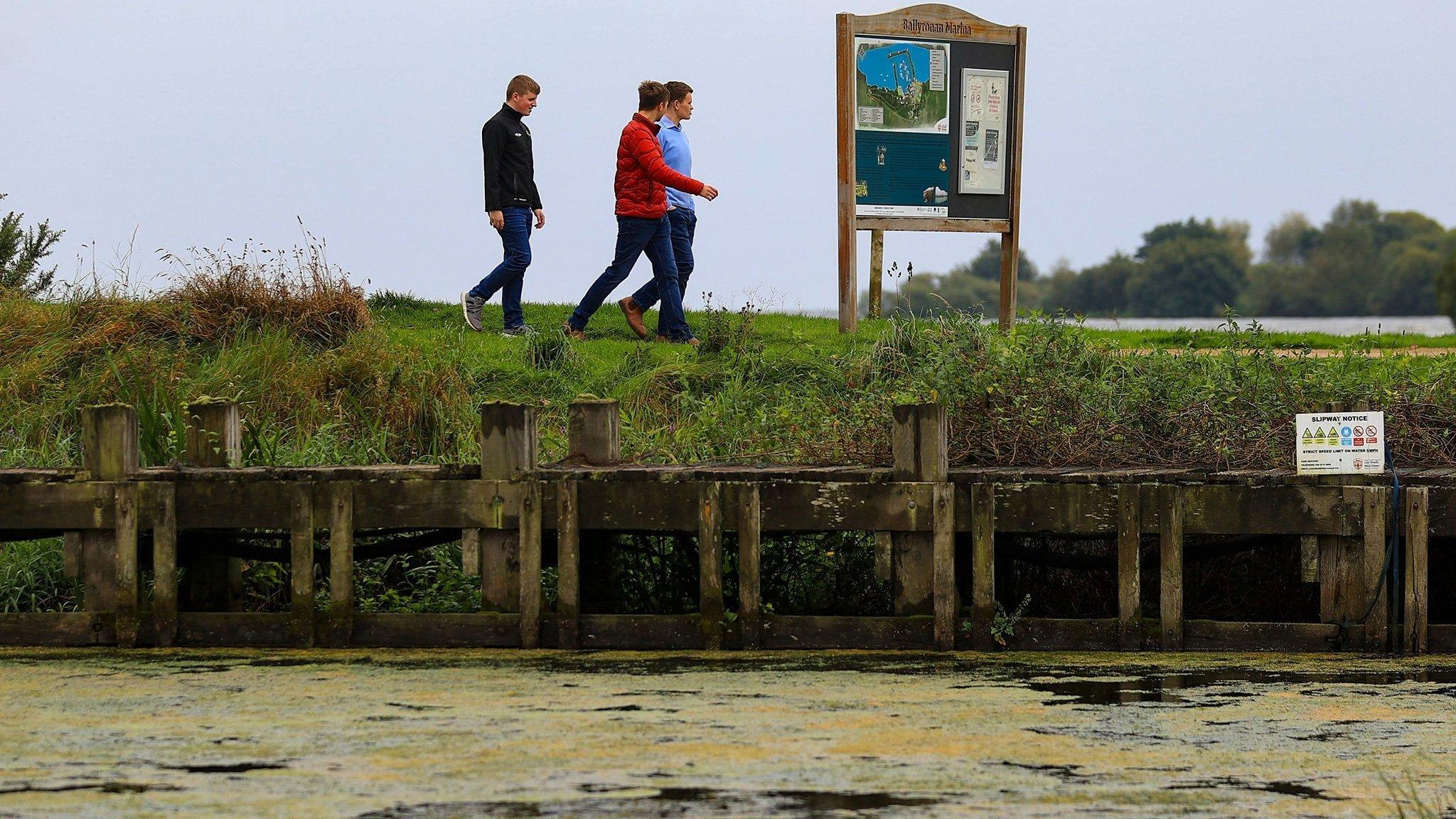
- Published4 October 2023
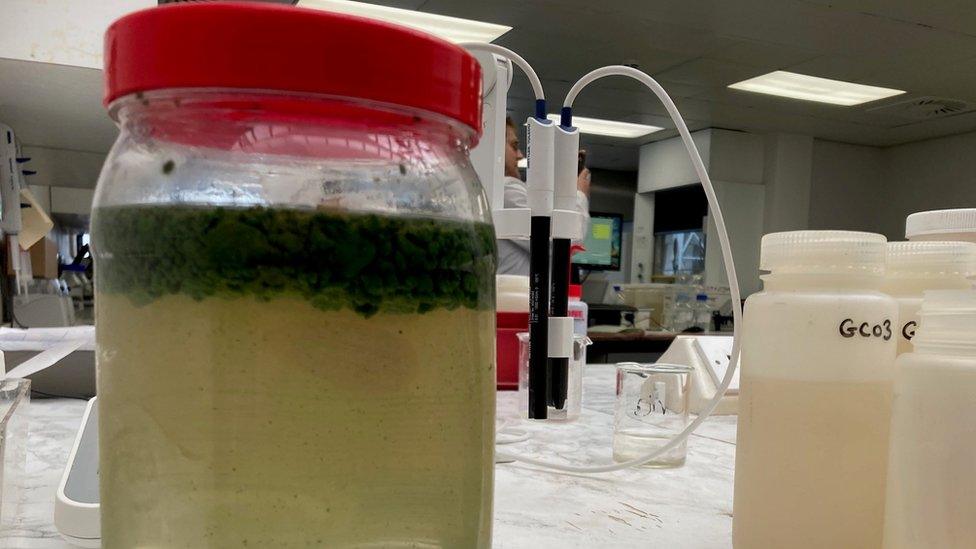
- Published4 October 2023
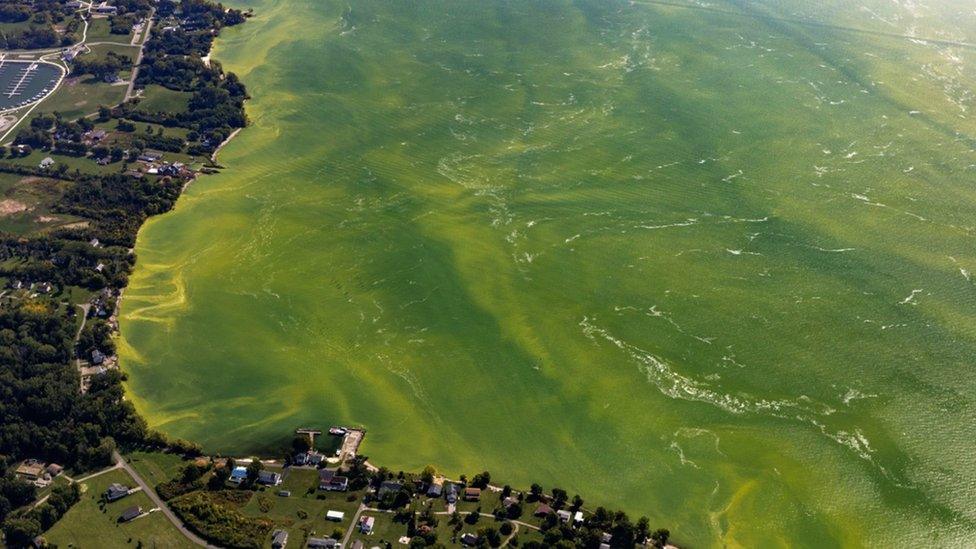
- Published3 October 2023

- Published4 October 2023
